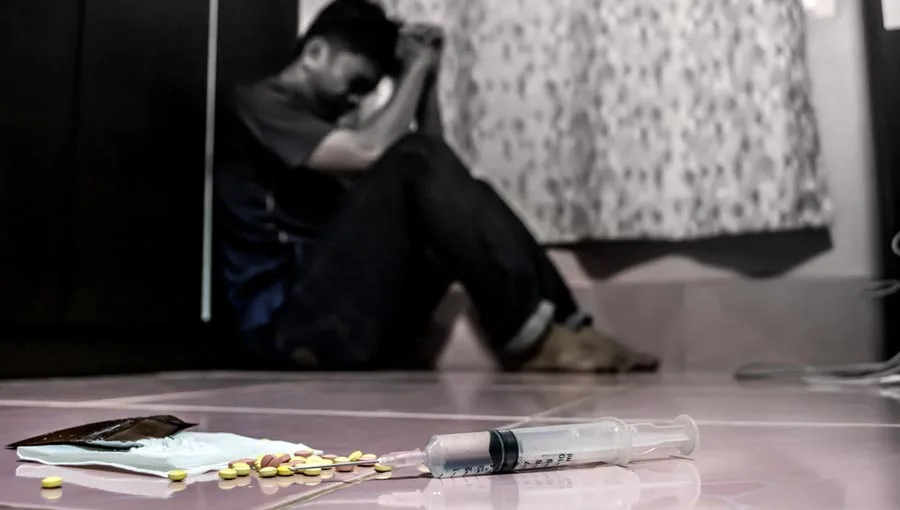Inpatient Addiction Treatment for Lasting Recovery Success
When you’re faced with the task of attending a treatment program, most people may be more partial to attending outpatient treatment or day treatment programs for obvious reasons. They retain more of their freedoms, can potentially continue to work and see their friends, and engage in other activities that aren’t possible during a residential treatment program.
And while this may seem more productive in the short term, the long-term recovery outlook doesn’t look as positive for those with more severe substance abuse issues. In these cases, the best course of action is usually a residential treatment program with a variety of therapeutic options, in addition to downgraded care levels after completing treatment.
If you or someone you know is experiencing challenges with drug or alcohol addiction, please continue this article until the end. South Shores Recovery and Detox will detail the benefits of residential substance abuse treatment programs that often deliver lifesaving treatment for you or your loved one.
What Is a Residential Treatment Program?

A residential treatment program is a drug and alcohol addiction management facility that helps those with substance use issues recover from their challenges. Many of these facilities also help with mental health disorders, providing treatment and care levels outlined by the Substance Abuse and Mental Health Services Administration (SAMHSA).
During inpatient treatment, clients typically remain for a duration of 30, 60, 90, or 120 days, depending on the severity of the substance abuse issue. Throughout the day, or for the course of 8-10 hours, clients will meet with various treatment professionals to receive education on addiction management and various recovery strategies.
They will also participate in group therapy with other peers in treatment, in addition to family members from the outside. Certain residential treatment programs such as our programs at South Shores, also offer holistic options.
These include most standard, evidence-based forms of therapy. However, they also expand to include residential treatment programs like art therapy, yoga, surf therapy, and other progressive forms of healing.
What to Expect During a Residential Treatment Program?
How does one prepare for a residential treatment program? Preparation for residential treatment programs is crucial. The sooner you prepare for your substance abuse treatment facility stay, the better. Establishing a target date of admission and ensuring all business is taken care of before that date is also important.
During your substance abuse treatment preparation, you should focus on the following areas:
- Speaking with your employer regarding your stay at the substance abuse treatment clinic
- Choosing suitable hotels or lodging for loved ones that might accompany you and pick you up
- Transportation to and from inpatient treatment
- Understanding what items, you can and can’t bring
Ensure that Your Inpatient Treatment Involves Family
The most effective inpatient treatment programs understand the need for family participation in the healing process. Loved ones, can reach out to those in residential treatment programs to offer moral and emotional support.
Each residential treatment facility has its own rules on how often and for how long clients are allowed to contact their families. While some facilities prohibit or strictly limit visitors during the client’s stay, others may welcome loved ones at any time. The client’s family members are often strongly encouraged to participate in and even receive their own family counseling from certain programs.
As stated earlier, there are multiple benefits to attending residential treatment programs as opposed to outpatient treatment – in certain cases. Let’s look at some situations where residential treatment is the best option.
How Do I Know Residential Treatment Is My Best Option?
How can you be sure that residential treatment programs are the best course of action? Many clients ask this question prior to selecting a facility, and most residential treatment programs, like South Shores Detox and Recovery, are glad to discuss this further to help steer you in the right direction.
In the meantime, use the following section as a guideline to help you decide which treatment program to start preparing for.
When Addiction Is Long-Term
If your addiction is long-term and spans the course of years, there’s a high probability that residential addiction treatment is best suited for you. The longer you battle addiction, the more difficult it is to enter recovery.
When Withdrawal Symptoms Persist
If your drug of choice involves substantial withdrawal symptoms, a residential treatment program is likely your best option. These facilities offer medically assisted detox in most cases, and medical professionals are on hand to help you cope with the discomfort of withdrawal symptoms. You’ll receive medication and other assistance to help you through this difficult period.
If You’ve Attempted Rehab in the Past
If you’ve attempted any form of treatment program in the past, residential substance abuse treatment is probably a better option. Whether you attempted outpatient drug addiction treatment or a residential program, it’s important that you do your research into finding a facility that provides what you were lacking from your previous attempts.
It’s possible that you need a residential substance abuse treatment program that provides specialized areas of care like dual diagnosis, trauma-informed, or holistic forms of healing.
If You’ve Suffered Immense Damage in Your Personal and Professional Life
If your personal or professional life has been impacted significantly by your addiction, residential drug treatment programs can put you on the path to recovery. It’s easy for addiction to lead you down a path of loss, pain, and countless personal, professional, and legal mishaps.
In some cases, residential drug treatment programs are court-ordered. Regardless of the reason, it’s vital that your goals are aligned with those of the program – otherwise, you could be setting yourself up for a losing effort.
Daily Expectations for Residential Drug Treatment Programs
Clients at residential treatment facilities can give their full attention to healing and recovery since they are removed from any outside influences. A day in addiction treatment follows a strict routine, delivering a structured environment for those participating.
Individual and group sessions with psychologists, counselors, and psychiatrists help clients slowly recover, building a solid foundation as they work their way toward sobriety. The average length of an inpatient treatment program is between 30 days and 6 months.
For many people, medically assisted detox is the initial stage of addiction treatment. Medical professionals and addiction specialists watch after clients closely as they go through detox. Relapse is typical following detox without further treatment because of the difficulty of overcoming urges. Professional medical care can help reduce withdrawal pains and cravings.
Getting Support as Your Brain and Body Begin Healing
Over time, the brain changes its response to certain addictive chemicals. No substance has pleasant withdrawal effects, but a doctor must monitor some clients to prevent potentially fatal complications. Withdrawal symptoms might be lethal in certain cases – heroin, alcohol, benzodiazepines, and synthetic opiates all have potentially fatal withdrawal symptoms.
In many cases, the difference between success and failure hinges on access to medical detox. After detoxing, substance abuse treatment typically entails the inpatient rehab portion of the program. This is when all mental facets of substance abuse are addressed, and those who seek treatment will gain much of their education and guidance that leads to the long-term recovery process.
Now that you’re aware of many of the early elements of substance abuse rehab let’s take a look at some of the most significant advantages of residential therapy.
What are the Benefits of Inpatient Rehab?
In this section, we’ll break down the most significant benefits of inpatient rehab. At this point, you’ve likely made your decision, or are close to deciding, that an inpatient facility is your most beneficial option.
This should further solidify your decision and hopefully give you the final push you need to enter a program.
They Provide the Most Privacy Available
Clients at a rehab program are just as deserving of personal space as everyone else. People who suffer from substance misuse are given complete anonymity in drug rehab centers.
Unless they are already friends or family, strangers won’t learn anything about you during the administration process. Additionally, the rehabilitation facilities feature strong levels of security to turn away unwelcome visitors.
Everyone can relax and focus on their healing thanks to this safety net. Rehab facilities vary in their approach to client confidentiality, so it’s important to verify their policies before enrolling.
Many Therapeutic Options
Drug addiction has a huge impact on your mind and body. The goal of treatment or therapy should be the total well-being of each client.
Treatment programs available at most rehabs tend to be quite extensive. Clients are encouraged to attempt to discontinue using days or even weeks before entering. However, this isn’t always possible, especially with opioids or benzos. After medical detox is accomplished, there are several options for more focused treatment.
Programs in treatment range from cognitive behavioral therapy to motivational interviewing to contingency management.
A Continuum of Support: With You Every Step of the Way
After completing drug treatment programs, individuals report having altered their perspectives, values, and routines regarding a variety of substances.
Rehabs aid those in recovery by encouraging them to focus on healing themselves more than others. Clients can escape from the constant influence of loved ones. At the facilities, they meet new people, develop social skills, and learn to communicate more effectively.
Clients are encouraged to engage in constructive peer interaction at rehabilitation facilities. They supply everything necessary, including food, to maintain their health.
All these elements are necessary for healing and are an example of the plethora of healing solutions available at facilities like South Shores Detox and Recovery. We take pride in crafting an individual plan for each client that walks through our doors and stays with you in support through aftercare and for as long as needed.
Structure and Routine
Treatment programs available at rehab centers are comprehensive and organized. The programs are designed around the regular routines of the client.
The programs are separated into periods where the clients can relax and reflect on what they’ve learned. These routines and regimens can help clients’ relationships outside of treatment once they return home as well.
Some people have trouble keeping track of time, and having a regular schedule can help get lives back on track and create a renewed sense of self-confidence.
Higher Odds of Success During Detox
The weaker a person feels, the more likely they are to reach out to old friends and return to previous habits after attending an outpatient treatment appointment. When clients return home each night, they are typically surrounded by reminders of their substance addiction, increasing the risk of relapse.
A client in a residential treatment program is removed from their usual environment and away from any substances they may be tempted to use again.
The Environment Is Safe and Secure
Clients at rehabs are provided with a secure and supportive setting. The in-house counselors are compassionate people who truly try to help those in their care.
The best services can be provided since the counselors have extensive knowledge of the many forms of drug dependency. Each client at the rehabilitation center receives individualized care in a soothing setting.
Clients will feel more at ease and protected in a secure setting. This allows them to make more substantial progress than they would if they attempted to recover at home.
Clients don’t experience the same level of isolation as they would at home. When attempting recovery at home, you’re left to your own thoughts and influences, making relapse a possibility.
Counselors are also tremendous resources for our clients. During admission, we research the client’s background in further detail to determine the best course of treatment. With this data at their disposal, therapists may tailor their care to each individual in need.
Achieve Inpatient Success at South Shores Detox and Recovery
If you’re in need of immediate addiction treatment and have been contemplating an inpatient program, South Shores Detox and Recovery is one of the premier facilities in the Southern California and Orange County areas.
We provide assistance to those local to the area and many clients traveling from around the United States. Our facility specializes in client anonymity, giving each client the level of comfort and privacy required for proper healing.
South Shores also deliver a large selection of therapeutic options during inpatient treatment, allowing clients of all types with different addiction backgrounds to obtain the specific therapy they need. Dual diagnosis, trauma-informed care, holistic, evidence-based, and other forms of therapy are all included as part of our programs.
For more information regarding our facilities, contact a member of our Admissions team for a confidential consultation today!





